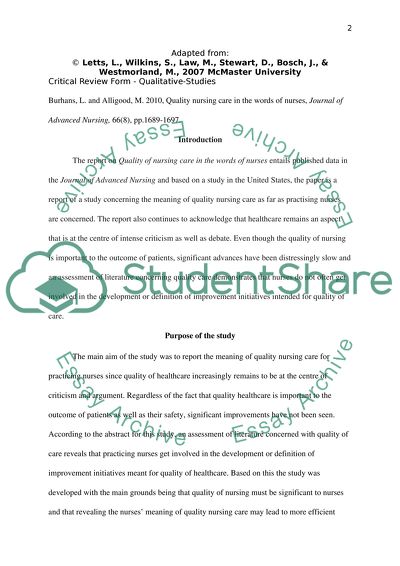Cite this document
(“Critiqing a research article / using MCMASTER framework Essay - 1”, n.d.)
Critiqing a research article / using MCMASTER framework Essay - 1. Retrieved from https://studentshare.org/nursing/1674600-critiqing-a-research-article-using-mcmaster-framework
Critiqing a research article / using MCMASTER framework Essay - 1. Retrieved from https://studentshare.org/nursing/1674600-critiqing-a-research-article-using-mcmaster-framework
(Critiqing a Research Article / Using MCMASTER Framework Essay - 1)
Critiqing a Research Article / Using MCMASTER Framework Essay - 1. https://studentshare.org/nursing/1674600-critiqing-a-research-article-using-mcmaster-framework.
Critiqing a Research Article / Using MCMASTER Framework Essay - 1. https://studentshare.org/nursing/1674600-critiqing-a-research-article-using-mcmaster-framework.
“Critiqing a Research Article / Using MCMASTER Framework Essay - 1”, n.d. https://studentshare.org/nursing/1674600-critiqing-a-research-article-using-mcmaster-framework.


